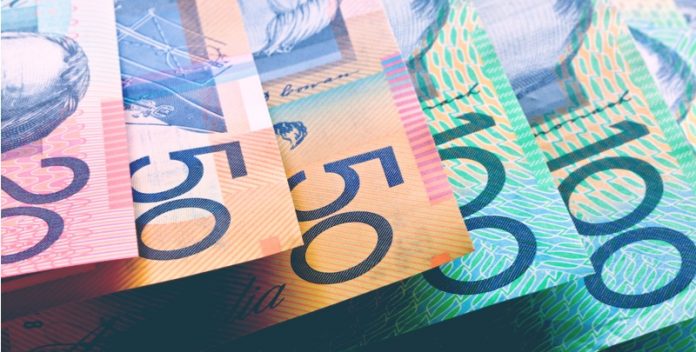The Australian Dollar is falling for a second straight session versus the US dollar on Tuesday. After shedding 0.8% in the previous session, the Australian Dollar was down a further 1.5% versus its US counterpart.
At 16:00 UTC, AUD/USD was trading -1.5% lower at US$0.6481. This is at the lower end of the trading range of US$0.6470 – US$0.6604.
Australian Dollar Investors Expect April Rate Cut
The Australian dollar is falling lower across the board as investors continue to fret over the global implications of the coronavirus outbreak. The Australian dollar is a commodity currency, so it is considered a riskier currency which explain the sell off in the previous session as financial markets across the globe plummeted.
However today financial markets are pushing higher and yet still the Australian dollar is declining. This is because investors are now fearing that Australia is on the brink of a recession for the first time since 1991.
A toxic combination of the negative impact from China’s virus induced economic slowdown, declining confidence in addition to domestic disruptions from the bush fires and coronavirus outbreak are expected to result in a sharp slowdown in GDP at the start of this year.
Analysts are expecting Australian GDP in the first quarter of the year to drop to -0.4%. This is to be followed by a contraction of -0.3% in the second quarter of the year, bringing an end to over 28 years of economic growth.
The Reserve Bank of Australia cut interest rates last week. Market participants are expecting them to cut again in April. This is weighing on the mood for the Australian dollar.
US Dollar Rebounds On Stimulus Hopes
The US Dollar advanced versus its peers on Tuesday as investors grew optimistic of fiscal stimulus. President Trump announced a fiscal stimulus package that would be “major” and “very dramatic”. Whilst he has not come forward with any further details, the prospect of stimulus has lifted sentiment across the financial markets.
There is no high impacting US economic data. Instead investors will remain focused on coronavirus and any response from Washington.





